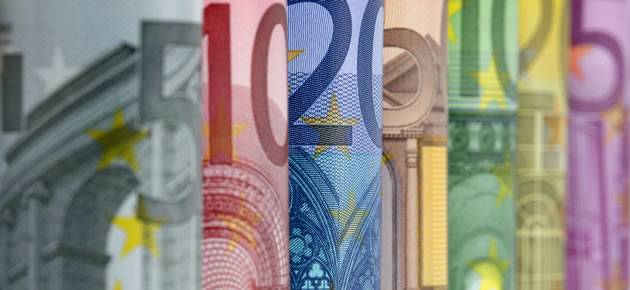The Euro to Pound Sterling (EUR/GBP) exchange rate continued its rally on Tuesday after the UK Consumer Price Index (CPI) fell lower than economists had forecast, to 0.3% in January on the year.
The December figure had resided at 0.5% and a smaller drop to 0.4% had been predicted.
As a result, many economists and investors have suggested that the UK may have to wait until 2016 for an interest rate hike–far later than initial November 2014 forecasts.
Economist Howard Archer commented: ‘It is borderline as to whether the Bank of England starts to raise interest rates at the end of this year or holds fire until early 2016. Much will depend on just how much UK wage growth picks up as 2015 progresses and whether inflation expectations weaken markedly.’
Earlier… The Euro to Pound Sterling (EUR/GBP) exchange rate recorded gains on Tuesday ahead of the release of UK Consumer Price Index (CPI) stats.
Forecasts expect to see a decline from 0.5% to 0.4%.
The Euro to Pound Sterling (EUR/GBP) exchange rate recorded gains early on Monday’s session after UK Rightmove House Prices fell from 8.2% to 6.6% on the year in February and Greek negotiations continued.
The Euro to Pound Sterling (EUR/GBP) exchange rate is forecast to have a tumultuous week ahead as Greek negotiations continue and highly influential UK and Eurozone data emerges. Greek finance minister Yanis Varoufakis has reportedly stated that he will continue talks through the night if necessary to negotiate a deal.
Euro to Pound Sterling (EUR/GBP) Exchange Rate Forecast
Monday will start mildly, with only the UK Rightmove House Price Index out for publication. The figure is generally regarded as low importance; however, Monday is eerily quiet for domestic data the world over, causing more exaggerated movement on ecostat releases.
In addition, further meetings between finance ministers will occur to discuss Greece’s requests regarding austerity renegotiations.
However, Tuesday is when fluctuations in the Euro to Pound Sterling (EUR/GBP) exchange rate are likely to really heat up. UK Consumer Price Index (CPI) stats are due out and could pressure the Pound Sterling to Euro (GBP/EUR) exchange rate lower if significantly out of line with forecasts.
Economists have suggested a small fall in headline inflation from 1.30% to 1.25% after oil prices fell rather dramatically in recent months.
Core Inflation Scrutiny Expected after BoE Inflation Report
However, Bank of England (BoE) Governor Mark Carney intimated this week that the core inflation measure could dip below 0.0% in coming months. The central bank chief also suggested that if low inflation were a persistent problem that the Monetary Policy Committee (MPC) could begin to hike interest rates sooner than presently forecast.
In addition to the influential UK ecostats, ZEW will also release its German and Eurozone Economic Sentiment surveys which could have a massive impact on the Euro to Pound Sterling (EUR/GBP) exchange rate.
UK Unemployment Rate and Employment Change stats are scheduled to emerge on Wednesday and any increase in joblessness could weigh on the Pound for a considerable time. Economists have predicted the Unemployment Rate will remain at 5.8% in the three months through December; however, if any more slack in the UK labour market appears, investors may price out BoE interest rate hikes for some time.
Eurozone Consumer Confidence will be out for release on Thursday and previously resided at -8.5% in January.
Meanwhile, Friday will be a busy day for the Pound Sterling to Euro (GBP/EUR) exchange rate when Markit publishes its German Manufacturing, Services and Composite Purchasing Managers Indexes (PMI).
UK Public Sector Net Borrowing stats could have a moderate influence on the Pound Sterling to Euro (GBP/EUR) exchange rate on Friday. If Public Finances and UK Retail Sales also print favourably the British Currency could be offered the chance to climb.
If risk sentiment in the currency market declines over the week due to geopolitical tensions or difficulties in the Greece debt negotiations, the Euro could lose favour.
This week saw Russia and Ukraine reach a ceasefire agreement and offered the Euro a little support. However, if the ceasefire doesn’t remain in place, trade to the Eurozone could be severely damaged with further sanctions against Russia, therefore allowing the Euro to Pound Sterling (EUR/GBP) exchange rate to tumble.
The Euro to Pound Sterling (EUR/GBP) exchange rate was residing at 0.7422 during Friday’s session; the Pound Sterling to Euro (GBP/EUR) exchange rate was trending in the region of 1.3487.
On Sunday the Euro to Pound Sterling (EUR/GBP) exchange rate was trading in the region of 0.7386.



